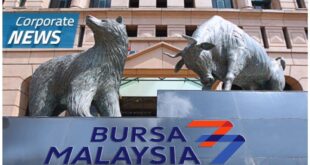IT is unclear how Malaysia will fund the high-speed railway (HSR) project linking Kuala Lumpur to Singapore considering the unity government’s commitment to fiscal consolidation but also focusing on spending priorities that will raise income levels of its citizens.
Although there will be short-term benefits, like jobs linked to the project construction, the longer-term benefits won’t be felt until years later. Moreover, these jobs will mainly be filled by migrant workers due to Malaysians’ aversion to such construction work.
Are Malaysians willing to wait years or do they want government initiatives that have an almost immediate impact? What are the immediate benefits of the project for ordinary Malaysians if it goes ahead? Is there a way the government can ensure it remains viable and does not become a white elephant?
The deadline for project proposals has been extended from Nov 15, 2023 to Jan 15, 2024. It will allow interested parties to explore financing options and form consortia with the necessary expertise for a BOT (design-finance-build-operate-transfer) model through a public-private partnership.
To date, domestic and international firms have bought more than 30 requests for information documents which were made available on July 27. The usual Malaysian construction and engineering firms have expressed interest or explored the possibility of partnering foreign firms with presence in Malaysia.
It will be interesting to know the funding structure, especially for land acquisition, given the many stakeholders.
What about the cost of building materials and labour? As there has been an indefinite freeze on foreign workers since March this year, where will the workers be sourced from? Perhaps the cost of building materials is lower than last year as supply chain issues have largely dissipated, but geopolitical flare-ups could push up prices again.
As subsidy rationalisation and a slew of taxes are implemented in 2024, inflation is likely to remain elevated. In spite of global inflation continuing to fall, economists generally expect no changes to the country’s benchmark Overnight Policy Rate. The cost of borrowing will remain high, especially for long-term, riskier projects.
The route could also be a cost concern if there are changes to the original plan which envisions two services – non-stop to Singapore and a domestic service with stops at several west coast towns.
According to a CGS-CIMB Research report in September, HSR will cater mostly to business travellers, which means domestic services are no longer viable. In that case, how many business travellers are there?
The BOT model works on a concession. With the private sector funding most of the project, the concessionaire, which is the consortium selected to design, develop and operate the HSR, must be profitable and recoup its costs.
Given the high costs involved, how viable will it be if fares are high? In the future, will taxpayers have to bail out the concessionaire? Will the concession be extended if passenger numbers don’t increase? Are the tickets going to cost even more?
Will HSR’s passenger numbers make economic sense with the number of travellers flying on the KL-Singapore route? Johor-Singapore rapid transit, which is more than half completed, is a better bet since more people travel that route than KL-Singapore.
Also, there is the cheaper electric double rail line, which will connect the entire west coast up to Padang Besar in the north when the Gemas-Johor Baru portion is completed.
Some say the domestic service will help revitalise the towns along the way. Even if it could, that’s a long way off.
The towns will never be able to draw investments like Johor Baru or Seremban. These cities are already booming and their momentum will continue.
People from smaller urban centres will flock to these cities, as they do to the Klang Valley and Penang. The North-South Expressway and the electric double rail line more than serve that purpose.
 BeritaKini.biz Berita Viral Terkini di Malaysia
BeritaKini.biz Berita Viral Terkini di Malaysia




